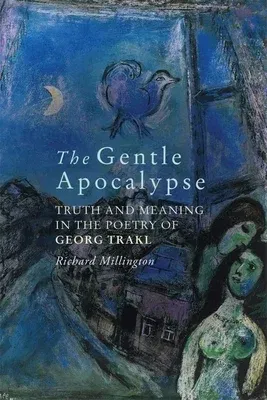Richard Millington
(Author)The Gentle Apocalypse: Truth and Meaning in the Poetry of Georg TraklHardcover, 27 February 2020

Qty
1
Turbo
Ships in 2 - 3 days
In Stock
Free Delivery
Cash on Delivery
15 Days
Free Returns
Secure Checkout

Part of Series
Studies in German Literature Linguistics and Culture
Part of Series
Studies in German Literature Linguistics & Culture
Print Length
278 pages
Language
English
Publisher
Camden House (NY)
Date Published
27 Feb 2020
ISBN-10
157113588X
ISBN-13
9781571135889
Description
Product Details
Author:
Book Format:
Hardcover
Country of Origin:
US
Date Published:
27 February 2020
Dimensions:
23.11 x
15.49 x
2.29 cm
Genre:
Germany
ISBN-10:
157113588X
ISBN-13:
9781571135889
Language:
English
Location:
Rochester
Pages:
278
Publisher:
Series:
Weight:
589.67 gm